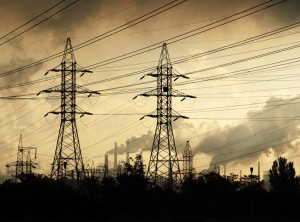Back Home
Posted on 27. Oct, 2010 by astark in U.S.A., bits
Back home in the United States, I’ve been thinking a lot about how domestic legislation impacts the UNFCCC negotiations. Working on Capitol Hill in Washington, DC, I spend a lot of time immersed in national legislation and observing and strategizing about what Congress will do next, which probably gives me a bit of a bias in my thinking on the importance of national legislation. Yet in the US-China tensions that flared in Tianjin, national domestic energy and emissions reduction legislation became an essential issue.
America’s inability to pass a piece of national legislation to reduce greenhouse gas emissions and promote renewable sources of energy proved to be a major stumbling block at the UNFCCC negotiations, or at the least part of the dance of the convenient scapegoats, as each negotiating team points to another to show why the international community is unable to take decisive action on climate change. This failure has provoked international criticism, and surprisingly is starting to provoke some soul-searching at home as well- Thomas Freidman wrote recently that this failure is a reflection of the failure of US power.
While this failure has broad (and broadly negative) implications for the UN climate talks and for the future of US power projection, the obsession with national legislation is obscuring the bigger picture of American efforts at emissions reductions. This is rightfully the case, because a lack of national legislation really does hamper the UN climate talks and could contribute to a failure there to reach a new fair and legally binding emissions reduction agreement. But it is also dangerous, because a lack of activist attention could cede the high ground to climate deniers and lead to a failure to recognize innovative and important ways to reduce US emissions.
As I said, I spend a lot of time thinking about national legislation. I work on Capitol Hill, across the street from the Senate buildings, and often interact with Senators and Representatives’ staff members, trying to convince them that they should support various pieces of legislation. When you’re in Congress, or even observing it, it’s so easy to get bogged down in the strategic machinations of Congresswomen and men as they try to get re-elected or push legislation for their own benefit instead of the entire country. But there are also parts of the federal government, as well as regional and local efforts, that are doing refreshingly well in creating innovative tools to regulate GHG emissions.
Most notably on the national level the Environmental Protection Agency, which is traditionally responsible for regulating pollutants that are directly and tangibly damaging to human health like mercury and sulfur dioxide, decided in 2009 that it was also responsible for regulating carbon emissions. The finding, released in December 2009, stated that greenhouse gas emissions were a threat to public health and the environment. EPA Administrator Lisa P. Jackson stated that “these long-overdue findings cement 2009’s place in history as the year when the United States Government began addressing the challenge of greenhouse-gas pollution and seizing the opportunity of clean-energy reform.” This means effectively that the United States can regulate emissions without any new legislation, and the EPA has already announced new energy standards, for example for cars and light trucks that will go into effect for model years 2012 to 2016. The EPA and the Department of Transportation also just released a joint proposal for a comprehensive national program for fuel standards for heavy-duty trucks and buses to reduce GHG emissions by about 250 million metric tons and save 500 million barrels of oil over the lives of the vehicles produced within the program’s first five years.
As you might imagine, this did not make many politicians particularly happy, and they are trying their hardest to stop these and other regulations from coming into effect. For example, the Rockefeller Amendment (sponsored by a Democrat no less) would strip the EPA of the ability to regulate emissions for two years. The EPA is also finding more creative ways to regulate GHG emissions. My colleague at work estimates that if the EPA’s new mercury regulations go into effect, it will cause enough dirty coal plants to close that the US will be well on its way to meeting the 17% emissions reduction commitment that President Obama made in Copenhagen.
Another major movement that is largely unknown internationally is happening on a regional level, led by state governors.
Several regional consortiums of states have programs in place to reduce greenhouse gas emissions, often through cap and trade. There are three regional cap-and-trade greenhouse gas accords, including the Regional Greenhouse Gas Initiative (RGGI) which I’m proud to say includes my home state New Jersey, as well as 9 others. The RGGI, according to the website, “is the first mandatory, market-based effort in the United States to reduce greenhouse gas emissions. Ten Northeastern and Mid-Atlantic states have capped and will reduce CO2 emissions from the power sector 10% by 2018.” Analysts say that although accords like these are often politically difficult to create, since they involve taxing big oil and major polluters, they are also extremely difficult to get rid of once they’ve been created, since states begin to rely on the revenue stream, and are even useful in balancing states’ budgets.
So the United States may still be the international laggard. But we also want the world to know: most of us are trying! President Obama recently stated in an interview with Rolling Stone magazine that even though producing comprehensive national climate change and energy legislation is becoming less and less likely, the White House administration will be turning its attention to ‘legislating in chunks:’ that is, building small pieces of legislation on a regional or national level that all contribute towards a broader goal of energy efficiency and lowering GHG emissions. This is not necessarily the best way to achieve these goals for a variety of reasons, including the fact that it will be substantially more difficult to monitor progress and figure out whether emissions reduction goals are actually being achieved.
But, “chunks” is the best that we’ve got right now. We can’t give in to the demands of climate deniers who insist that any action taken to reduce emissions will be economically devastating-we have to show that EPA regulations and regional cap-and-trade consortiums are ultimately beneficial to the environment, to people, to our world, and yes, even to the economy. Politically, we have to work with the only tools that we have access to in order to achieve any progress on emissions reductions.
I’ll (try to) be posting regularly in the time before the COP-16 conference from November 29 to December 10, so remember to check this space early and often! –Alex.










